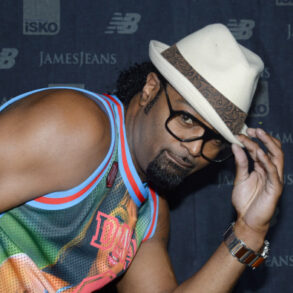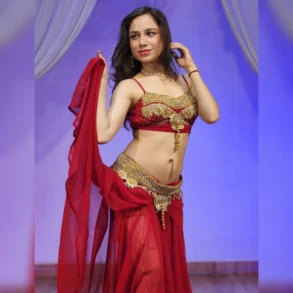
In less than 24 hours after Australian b-girl Raygun’s performance at the 2024 Paris Olympics, she became a viral sensation and was subjected to the world’s scrutiny.
It’s time to broaden the spotlight. There are countless women redefining what it means to be a breaker, creating space for more diversity and acceptance in the culture. For decades, b-girls have been pushing for the recognition and representation they deserve. Their efforts have paved the way for exponential growth in women’s participation, competitive and commercial success, as well as opportunities in breaking.
I spoke with a few of these women at the 2024 Red Bull BC One USA National Cypher in Los Angeles, where the USA’s best went head-to-head for a chance at the World Finals. Through those conversations, I learned about what identity means to them and about their individual journeys, both as b-girls and in life outside of dance.
The Meaning of Identity
Rascal Randi (Randi Freitas) is a professional dancer who has done it all: performing at the Grammys, choreographing for the Hip Hop Nutcracker, battling, teaching, and more. To her, “identity is who and how we show up in the world.” The combination of your natural self and environment, plus the person you aspire to be, all plays a part. That all-encompassing identity is then expressed through dance. Randi asserts, “If you’re being authentic to yourself and bringing your true self to the dance, you don’t even have to think about forcing your identity into it, it’s just going to be present.”
Los Angeles native Lily Breeze (Lilian Ortega) started dancing as a child by learning the mambo from her father and now teaches dance herself along with competing. She agrees with the importance of authenticity: “You can’t fake it.” Breaking is not only a channel to show your individualism, it’s also a way to develop it. Lily says “breaking has helped me discover more of what that identity is. And has helped me, really, like, hone in. And feel, one, seen. Two, like, I have a space where I could fully showcase every part of myself—artistically, culturally.”
Embracing yourself is the takeaway. One’s own identity should be explored, nurtured, and hopefully shared. But it’s not easy, especially on a prestigious stage like Red Bull BC One or the Olympics. Ukraine’s Olympian in breaking, B-girl Kate (Kateryna Pavlenko), knows this firsthand, having overcome mental blocks and trauma to reach the Olympics and rock it her way. Being honest with yourself and daring to show your true self is tough, and “not everyone is confident enough to be open.” When a breaker succeeds at this, that’s when they become one of a kind, able to be recognized by simply their silhouette when they move on the floor.
Living a Full Life
The road to equality has been anything but easy. From the early days of hip hop, the culture has been male-dominated, and b-girls have had to fight for equal recognition, compensation, and respect. Perhaps that’s why all the women I spoke with had a rather holistic view when reflecting upon their own respective journeys.
B-girl Wonda (Christina Bell) is a mother of two making her return to competitive breaking, and for her, it has been about “getting used to being uncomfortable. I feel like mastering uncomfortableness is a huge benefit in life, especially in this dance.” Through balancing a range of responsibilities including family, breaking, and running her own business, Wonda has learned to take challenges in stride and pursue a full life. “It’s healthy and it’s great and it’s positive to have a family and still continue to break in your career. It’s possible. I mean, you have one life.”
Snap1 (Brianna Pritchard), Team USA breaker and National Guard helicopter mechanic, is another who understands the value of a full life. She has pursued excellence in breaking, the military, and elsewhere without letting any of it hold her back. Snap1 says that putting effort into breaking “does bring you worth, but, you know, so does being successful at life.” She suggests that young b-boys and b-girls devote just as much time and energy into self growth as they do into breaking. “Put that same effort into being a successful human being.”
For the Next Generation
True to the “each one teach one” tradition of hip hop, as well as to who they are as people, these women look to pass on their knowledge and create opportunities for those who would walk the same path. For example, Rascal Randi hosts an online floorwork training program to empower people on the floor and hold space for women to be comfortable. Lily Breeze teaches dance at two nonprofits, one of which is No Easy Props, founded by b-girl pioneer AsiaOne.
Each of these b-girls have more words of advice and encouragement for the next generation than can be relayed here, ranging from overcoming fear, to succeeding in life in a well-rounded way, to enjoying the process, having fun, and being in the moment.
Their passion and wisdom is apparent, a promising sign for the future of breaking culture. And in case it wasn’t clear, all of them are skilled dancers. Everything here and more—that’s the definition of a b-girl.
This post was originally published on this site be sure to check out more of their content.





